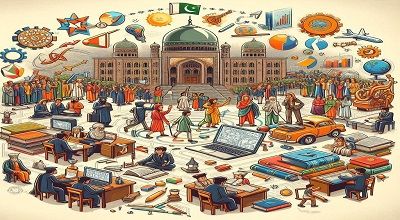Multiple Education Systems in the History of Pakistan
Now here we are sharing Multiple Education Systems in the History of Pakistan. Pakistan has a complex history when it comes to education systems. With multiple changes and reforms over the years. Here is an overview of the major education systems in the history of Pakistan:
British Colonial Era (1846-1947):
- During British rule, education in the region that is now Pakistan was primarily aimed at training civil servants and professionals to serve the British administration.
- The British introduced a system of education based on English-medium schools and a curriculum that emphasized Western knowledge.
Early Post-Independence Period (1947-1971):
- After gaining independence in 1947, Pakistan continued to use the educational system inherited from the British, with English as the medium of instruction.
- The system was divided into primary, secondary, and higher education, with a focus on science and technology.
Nationalization and Islamization (1971-1977):
- In 1971, Pakistan split into two countries, Pakistan and Bangladesh. In Pakistan, Prime Minister Zulfikar Ali Bhutto’s government implemented nationalization policies, taking over private educational institutions.
- In 1977, General Zia-ul-Haq came to power and introduced a policy of Islamization of education, with a focus on incorporating Islamic teachings and values into the curriculum.
Post-Islamization Period (Late 1980s-2000s):
- After General Zia’s death, efforts were made to reverse some of the extreme Islamization policies. The focus was on modernizing the education system while maintaining Islamic values.
- The education system was divided into five levels: primary, middle, high school, college, and university.
Devolution of Education (2001-2010):
- In the early 2000s, Pakistan introduced a system of devolution of education, giving more control to provincial governments to manage and develop their education systems.
- This period saw the development of the National Education Policy in 2009 and a renewed focus on improving access to education.
Current Education System:
- Pakistan’s current education system includes primary education (grades 1-5), middle education (grades 6-8), and secondary education (grades 9-12).
- There is also a higher education system, with universities offering undergraduate and postgraduate degrees.
- Various education boards and examination systems exist, with some provinces having their own boards for conducting exams.
Note;
It’s important to note that Pakistan’s education system has undergone multiple reforms and changes. The quality of education and access to it varies significantly between urban and rural areas and among different provinces. The government continues to work on improving the education system to address these disparities and provide quality education to all citizens.
